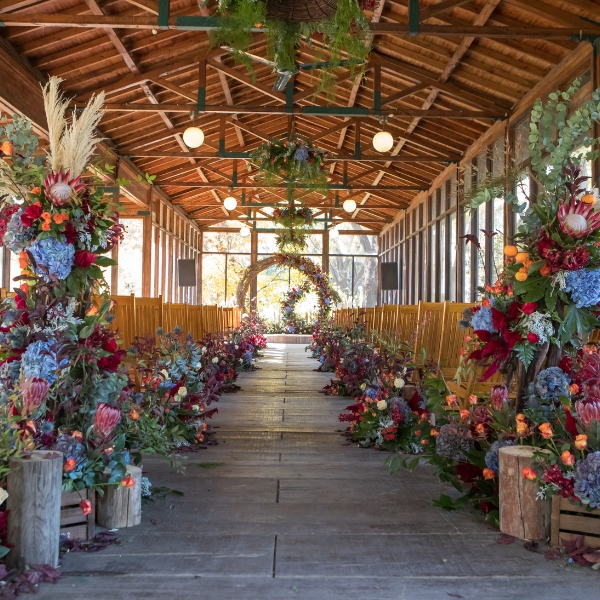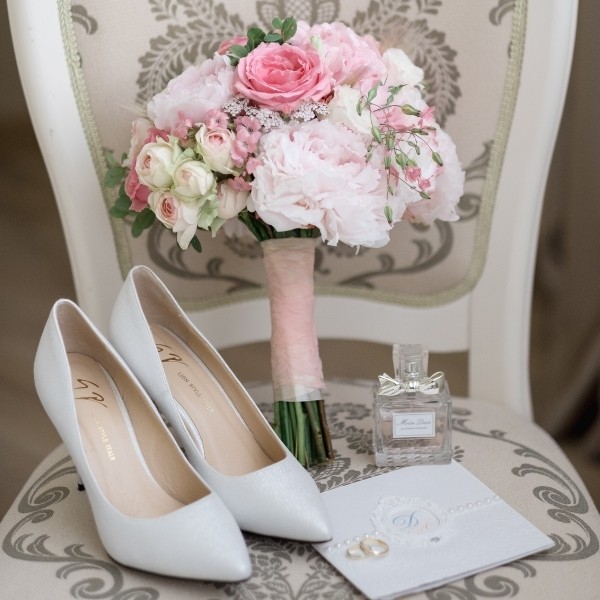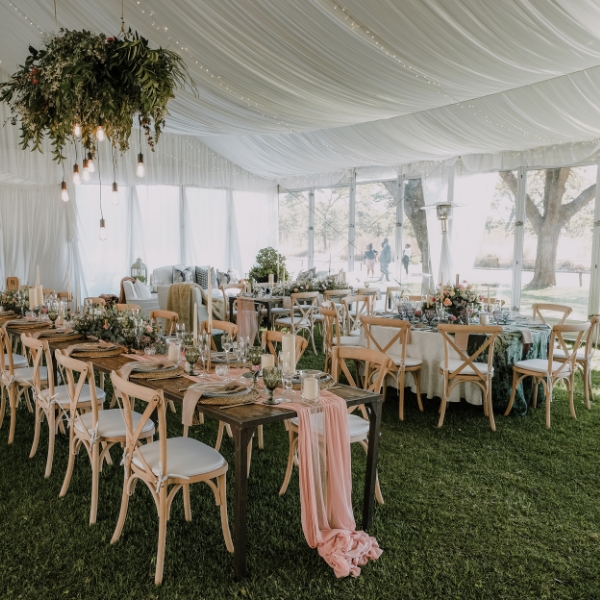Wedding Planning And Working: How To Manage. From 9-5 to “I do.” Wedding planning hustle for the working couple. Wedding bells and work meetings. Mastering the art of wedding planning while working. Tips for a work-life-wedding balance.
The great news is that you don’t have to quit your 9-5 job to plan a wedding. Not only is wedding planning doable while you commit to your full-time job, but it can also be fun.
Balancing a full-time job with wedding planning is crucial for maintaining both professional and personal well-being. While work demands may be significant, prioritizing wedding planning ensures that the special day reflects the couple’s vision and desires.
Taking breaks from work to focus on wedding arrangements allows for stress relief and fosters a healthy work-life balance.
Additionally, dedicating time to wedding planning strengthens communication and collaboration skills, vital for both personal and professional relationships.
By effectively managing both responsibilities, individuals can alleviate the pressure of wedding preparation while excelling in their professional endeavors, ensuring a harmonious transition into married life.

When you choose to work with a wedding planner, they will usually work around your schedule and book things around your availability—definitely one of the perks of working with a professional wedding planner.
Planning your wedding on your own, especially while working full time, can take much organizing and coordinating. The good news is, that we are here to help you out!
You might be wondering how many hours will it take to plan a wedding. The truth is, this depends on how decisive you and your partner are.
Starting with establishing breakdowns, steps, and schedules is essential so that you won’t feel overwhelmed. When you have broken down tasks and set expectations, you feel more confident and less overwhelmed.
This will help you enjoy wedding planning and also keep focused on your full-time work. Not to say there everything will be perfect, as there will definitely be challenges along the way.
But when you effectively set up a system from the beginning, the easier it will be to come up with solutions.
In this guide, we are sharing tips on how to plan a wedding while working full-time. Wedding Planning And Working:
Slow and steady
The engagement will naturally make you giddy with excitement, and you can’t wait to get married. Enjoy that engagement stage. When starting to wedding plan while working full-time, taking it slow and steady is critical.
Diving into wedding planning the following day of your engagement will quickly burn you out. It is a demanding task— from choosing the bridal gown, tux, and outfits, to the wedding caterer, to the makeup artist, to the wedding venue, and the rest of a very long list.
Break down your wedding planning tasks into manageable chunks with specific deadlines. Prioritize tasks by their urgency and importance.
Planning is an art, and art can’t be rushed. Breathe, relax, and enjoy the engagement.

Collab with your fiancé (Wedding Planning And Working)
Divide tasks with your partner to share the load. This not only lightens your workload but also ensures both of you are involved in the planning process.
Plan a weekend date with your soon-to-be spouse to talk about your wedding. Just don’t do it on a work night, when you are exhausted from work (and less open to opinions and ideas!) Also, make sure it’s a comfortable, quiet, and conducive space where you can both concentrate.
You can make it fun by having dinner out first and then ordering wine and dessert. Then you can start to talk about the wedding. You do not need to go over all the details but go over the essentials first. Do not overwhelm with info and the “unsure” things.
In this wedding planning timeline, you will find the top things you want to “cover” when starting your wedding planning. This collab dinner is an excellent time to DEFINE things. So what does this mean?
1. When you both agree on the budget and “not spend so much,” does that mean everything is capped at $20,000? $40,000? And so on…
2. Does it mean that if both of you agreed on having a “big” wedding, it would be a wedding guest count of 300 or 500? And so on…
3. Say you have come to terms that you want a fall wedding. Does this mean early fall? or late fall? What is that actual date?
4. If you both say you want a “classic” wedding, what does that look like really? All white? Or is that white and greenery? With some gold accents?
Defining these four things is such a great place to start. From here, you can even take a week’s rest to feel refreshed and ready to move on to the next planning task.
Get a mood board going
Whether it’s a physical or a virtual board, pooling your ideas for the theme, design/s, and other details visually will make planning not only more fun— but it’s easier if you are seeing what you want.
Pinterest is a great social media tool in which you and your partner can easily collect or “pin” all the wedding ideas on your board.
As an alternative, you can download images from Google and file them in one folder— organized by item, such as wedding dress, venue, wedding favors, dessert, and even as far as honeymoon destinations.
A visual board will spark inspiration and creativity, destress you, and even help you concentrate.
PRO TIP: Use this mood board as an “inspiration” only. When you start to reach out to wedding vendors, you will realize that they might also have other ideas and options that are more suitable to your budget and vision.
Technology will be your friend
Use wedding planning apps, online tools, and digital calendars to streamline the planning process and stay on top of deadlines and appointments. These resources can help you manage tasks efficiently, even when you’re on the go.
Maintain detailed records of all contracts, receipts, and communications with vendors. Use cloud storage or a dedicated folder to keep everything accessible.

Budget Allocation
In 2019, the average wedding cost $38,700, so you roughly have an idea more or less depending on the size of your wedding. Get multiple costs on your list before choosing a vendor— and get it into writing.
If you want to save up on wedding costs, you can choose to get married in the winter or on a weekday or a Sunday. It’s the time of the year when vendors can extend better pricing due to less demand.
Read more about how to allocate and manage your budget in this article.
Mini Task Chunks
Planning a wedding is overwhelming, so break it down into bite-size tasks. Create a digital calendar and spread out the tasks in realistic schedules. You can break down the tasks month by month, and week by week.
Set aside specific times during the week for wedding planning. This could be an hour in the evenings or a few hours on weekends.
This will also help you avoid “sneaking in” wedding tasks while working full-time.
When you break down the tasks, planning will be less stressful and enjoyable. Don’t forget to add a “wedding planning free” day. This day will help you and your partner reconnect and relax.
Use a calendar or planner to map out both your work commitments and wedding planning tasks. Allocate specific time slots each week for wedding-related activities, such as vendor meetings, venue visits, and DIY projects.
Use email to communicate with vendors outside of your working hours. This allows you to respond at your convenience without interrupting your workday.
If phone calls are necessary, try to schedule them during lunch breaks or after work hours.
Second Guess Your DIY Ideas and commitments
Embarking on DIY invitations, souvenirs, bouquets, and wedding signs can be super fun, especially if you are creative. However, it would be good to skip handcrafting wedding items because this will take up much of your time. Unless, of course, this is something that you want to take on.
The DIY projects might even become too much of a distraction from your work. Another thing to mention about wedding DIY projects is that you will inevitably start accumulating “stuff.”
This means there will be a lot of things and, again, “stuff” lying around your place, and it might trigger some overwhelming thoughts and can set up stress-inducing thoughts.
Be realistic about what you can accomplish while balancing work and wedding planning. Avoid overcommitting yourself or taking on too many tasks at once, as this can lead to burnout and stress.

Seek Help (building a team when wedding planning and working)
Don’t put all the wedding planning on you and your partner alone. Besides hiring a professional wedding planner or even a coordinator, seek help from close friends and family. You’d be surprised by enthusiastic responses, especially from creative people.
Check if you have days off available
If you have extra days off, use them to have a “targeted” wedding planning day, which means, if you have pending meetings, power through one day and pack it all. Preferably a Friday, this way you can enjoy the weekend and feel accomplished.
Of course, don’t forget to consider the days off you also need before and after the wedding.
Consider using some of your vacation days for wedding planning, especially in the final weeks leading up to the wedding.
Get Regular Sleep and Take Care Of Yourselves
Make time for self-care and relaxation to prevent burnout and maintain your overall well-being. Schedule regular breaks, exercise, get enough sleep, and engage in activities that help you unwind and recharge.
Ensure you’re getting enough rest and relaxation. Overworking yourself can lead to burnout, making both work and wedding planning more stressful.
We get it. This part is hard to do. Imagine you start a simple search on Pinterest, and 3 hours later, you’re still browsing. It does happen, and on some days it should be ok.
However, as you know, the next day will be a drag. Lack of sleep while working full-time is a significant challenge and keeps us from staying focused.
Per our step-by-step guide in breaking down your tasks, you can also include a “browsing time” in your schedule so that you can also manage and at least “try” to stick to it.
A great tip we can share is to set your alarm. So if you want to limit yourself to 1 hour of browsing, set your alarm so that you will be aware that one hour has already passed.
Download apps that can help you get into a bedtime routine. This is a big help when wedding planning while working full-time but also is a great habit to have even after your wedding.

Practice Letting Go (one of the most important tips when wedding planning and working)
This is not to say that you should not control your wedding at all. This is not what this is about.
It is about practicing letting go of little things, as well as things that are already done. If you have already decided and something is already booked, avoid revisiting it unless necessary.
Do not strive for perfection. Plan your wedding with a light mind and heart, and do not allow yourself to spiral into an unnecessary back and forth. Sure, any planning can involve bouts of frustration, but you can very much control your emotions during the planning stage by being conscious when you are holding on to something a little too much.
Always remember that the ultimate goal is commitment and not production. Do not beat yourself up.
In case no one has told you, we are here to remind you: YOU ARE DOING YOUR BEST LOVELY.
People around you, especially your partner, are also trying and doing their best, even if sometimes it is not at the same level as yours.
Practice being gentle and compassionate with yourself and with others.
Don’t hesitate to delegate wedding tasks to trusted friends, family members, or wedding planners. Assign specific responsibilities to others, such as researching vendors, assembling DIY decorations, or managing RSVPs, to lighten your load.
Celebrate The Love
Celebrate milestones and achievements along the way to keep motivation high. Whether it’s booking a venue, finalizing the guest list, or completing DIY projects, take time to acknowledge and celebrate each step forward in your wedding planning journey.
Of course, planning the wedding is essential. This guide is to help you balance the tasks and demands of wedding planning while working full-time. Celebrate with your partner when you reach milestones or when you tick off items on your “to-do” list.
Celebrate how you and your partner have come together as a team to take on wedding planning efficiently and how you made it fun! Giving yourself and your partner a chance to celebrate while wedding planning keeps the stress at bay and keeps you “balanced” even while both of you are working full-time.











